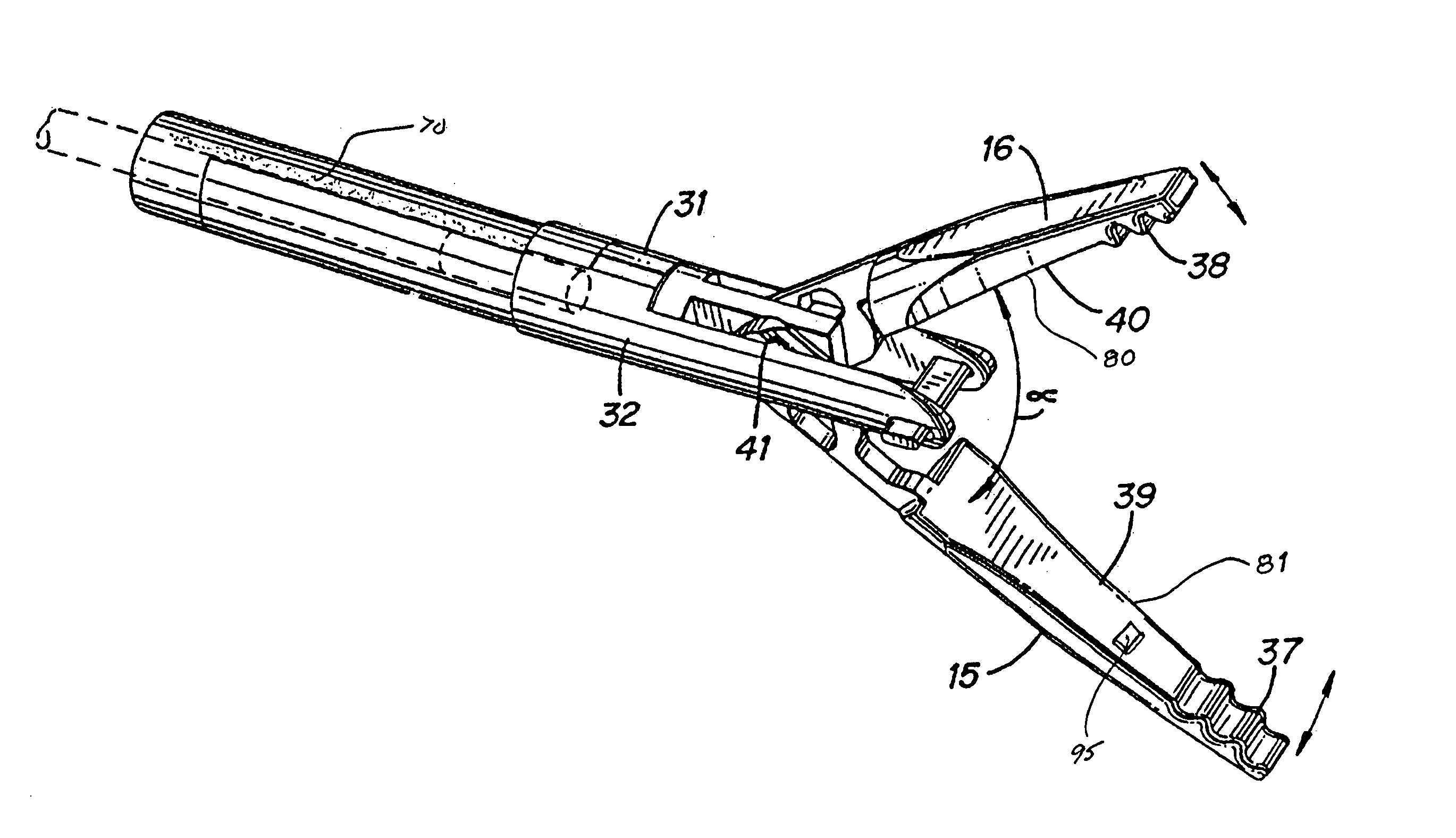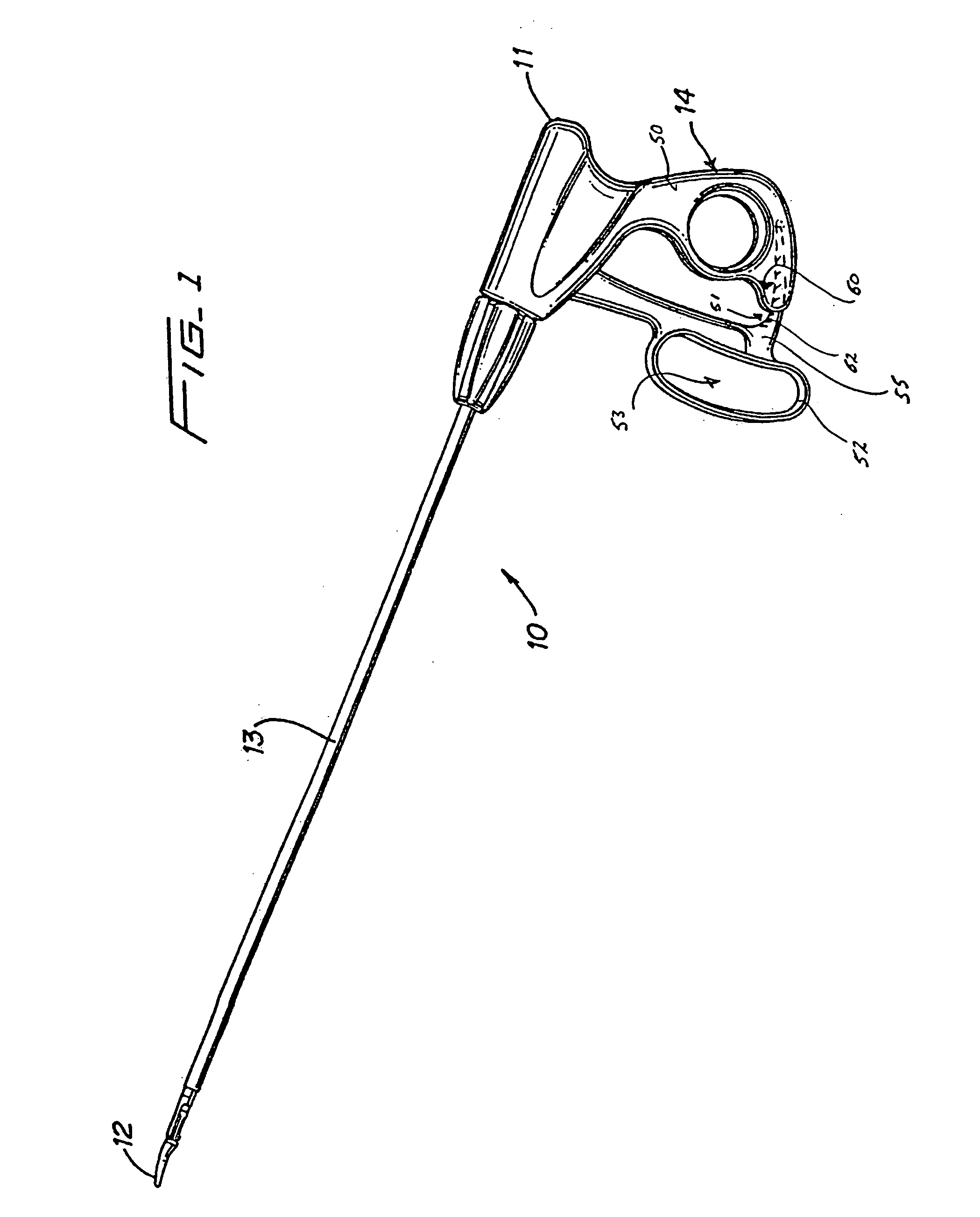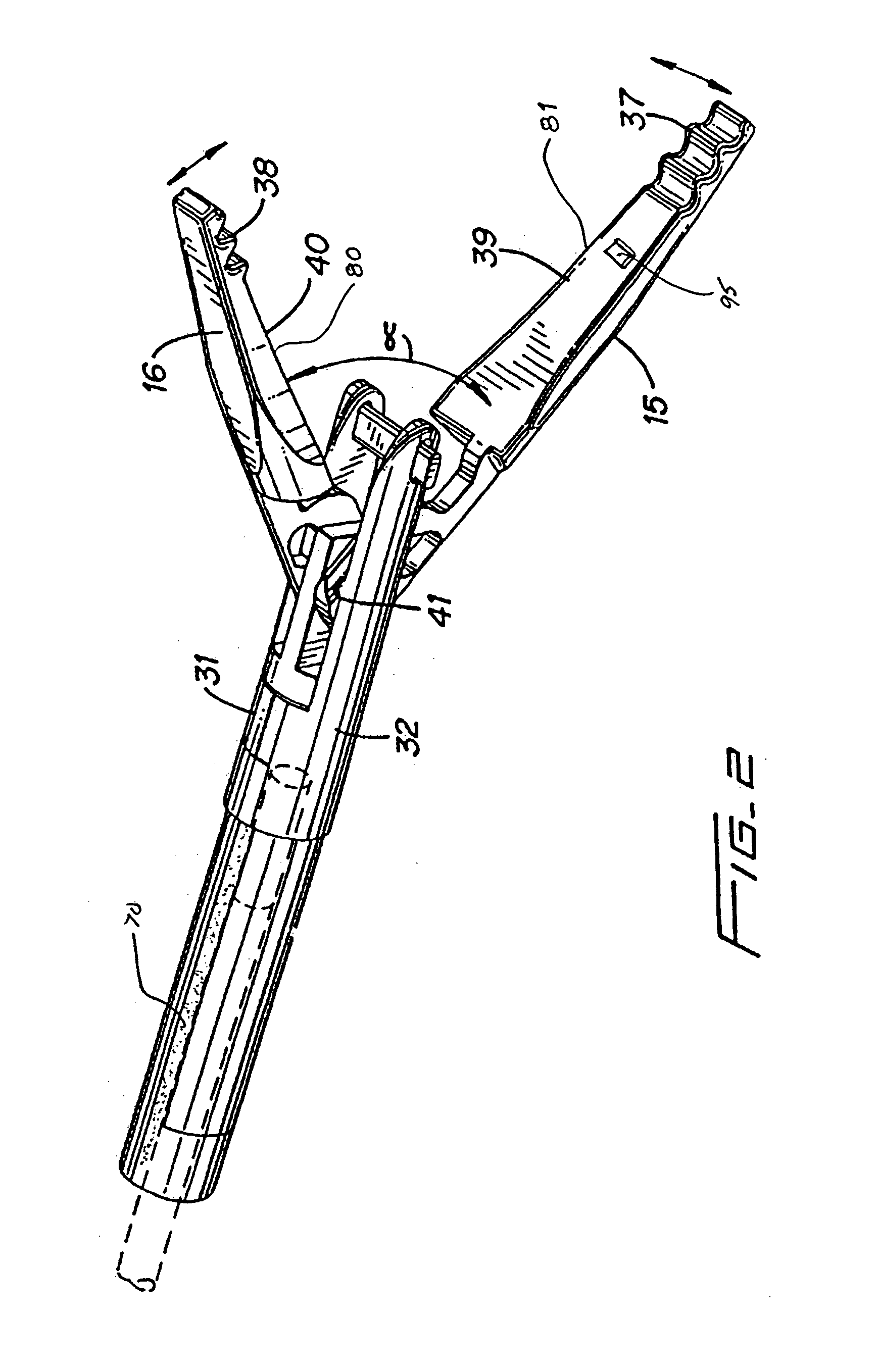Laparoscopic bipolar electrosurgical instrument
a bipolar electrosurgical and electrosurgical technology, applied in the field of electrosurgical instruments, can solve the problems of inability to safely coagulate arteries, difficulty in suture blood vessels using laparoscopic tools, and abandon the benefits of laparoscopy, and achieve the effects of reducing shear stress, reducing stress, and reducing stress
- Summary
- Abstract
- Description
- Claims
- Application Information
AI Technical Summary
Benefits of technology
Problems solved by technology
Method used
Image
Examples
Embodiment Construction
[0020] A laparoscopic bipolar electrosurgical-instrument 10 is shown in FIG. 1. The instrument 10 has a proximal end 11 with a handle 14 for holding and manipulating the instrument 10. A distal end 12 on the instrument 10 is used for surgical manipulation of tissue. The instrument 10 comprises an elongate tube 13 that is sized to fit through a cannula for laparoscopic operations, and in different embodiments may be sized to fit through either a five or seven millimeter cannula.
[0021] A portion of the distal end 12 of the instrument 10 is shown in FIG. 2. A first jaw 15- and a second jaw 16 are shown in an open position. An angle α is subtended by the jaws 15 and 16. Closing of the jaws 15 and 16 is defined as a reduction of the angle α subtended by the jaws 15 and 16. Similarly, opening of the jaws 15 and 16 is defined as an enlargement of the angle α. The angle α is zero when the jaws 15 and 16 are closed together. The center of rotation for the first jaws 15 is at the first pivot...
PUM
 Login to View More
Login to View More Abstract
Description
Claims
Application Information
 Login to View More
Login to View More - R&D
- Intellectual Property
- Life Sciences
- Materials
- Tech Scout
- Unparalleled Data Quality
- Higher Quality Content
- 60% Fewer Hallucinations
Browse by: Latest US Patents, China's latest patents, Technical Efficacy Thesaurus, Application Domain, Technology Topic, Popular Technical Reports.
© 2025 PatSnap. All rights reserved.Legal|Privacy policy|Modern Slavery Act Transparency Statement|Sitemap|About US| Contact US: help@patsnap.com



